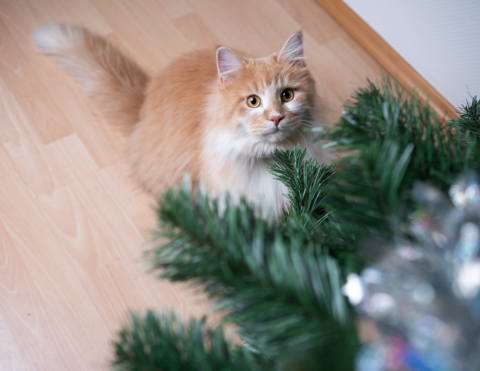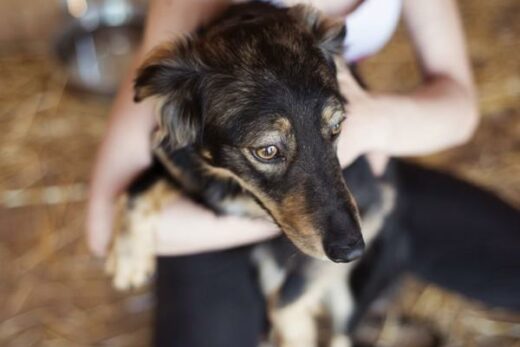The holiday season is here! While 2020 may look a little different than holidays past, many of our traditions remain the same. Decorations, presents, and the gift of giving keep the season bright for all. But in all the celebrations and decorations lurk several dangers for pets. To help keep the holidays safe and bright, here are some tips for holiday safety.
Decorating for the holidays? – Safety first!
You’re excited to get your home ready for the sparkly holiday season, but are your plans cat-friendly? Cats love to explore shiny or stringy objects, and kittens are at the greatest risk of injury.
- If using a real tree, cover the (potentially toxic) water to prevent drinking.
- Keep fragile decorations to a minimum, and out of reach.
- Electrical cords are particularly dangerous. It is important to remain vigilant and to keep them out of reach.
- Consider moving your Christmas tree to a room that can be closed off when you’re not at home.
- Avoid loose tinsel or string-like materials, and opt for paper bows or thick ribbons.

- Choose fake or non-toxic plants, and avoid lilies, poinsettias, holly, and mistletoe.
- Be extra vigilant with candles. Consider flameless candles instead.
- Consider training your cat to leave the tree alone through positive reinforcement and clicker training (check out our clicker training webinar here).
- Scat mats and pet deterrents can also be effective for many cats who are overly tempted by a tree.
Sharing Delicious Holiday Foods? – Think Again!
- Fatty, rich foods, such as turkey skin or gravy, can result in vomiting, diarrhea, and even pancreatitis, which can be deadly. To be completely safe, don’t share human food at all.
- Remember: foods like garlic, onions, chocolate, and avocados are toxic to cats – but so are dishes containing these ingredients. Make sure you know the ingredient list before sharing bites with your felines – or better still, don’t share human food at all.
- A common myth is cats can drink milk, but many cats are lactose intolerant due to a lack of lactase production. This can lead to stomach problems, vomiting and diarrhea.
- Watch that cocktail! Make sure to place all unattended alcoholic beverages out of reach of your kitties.





